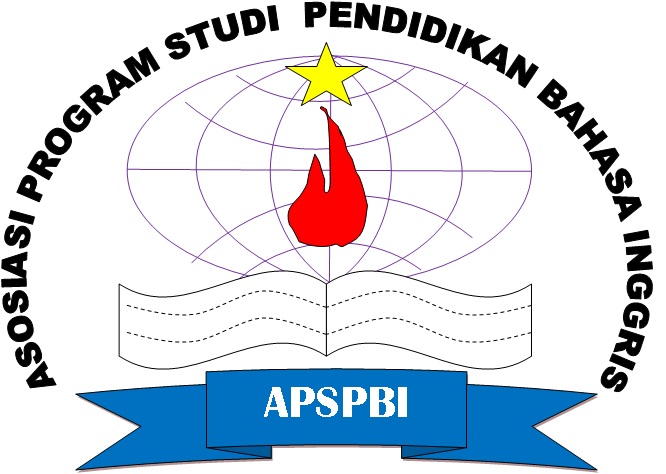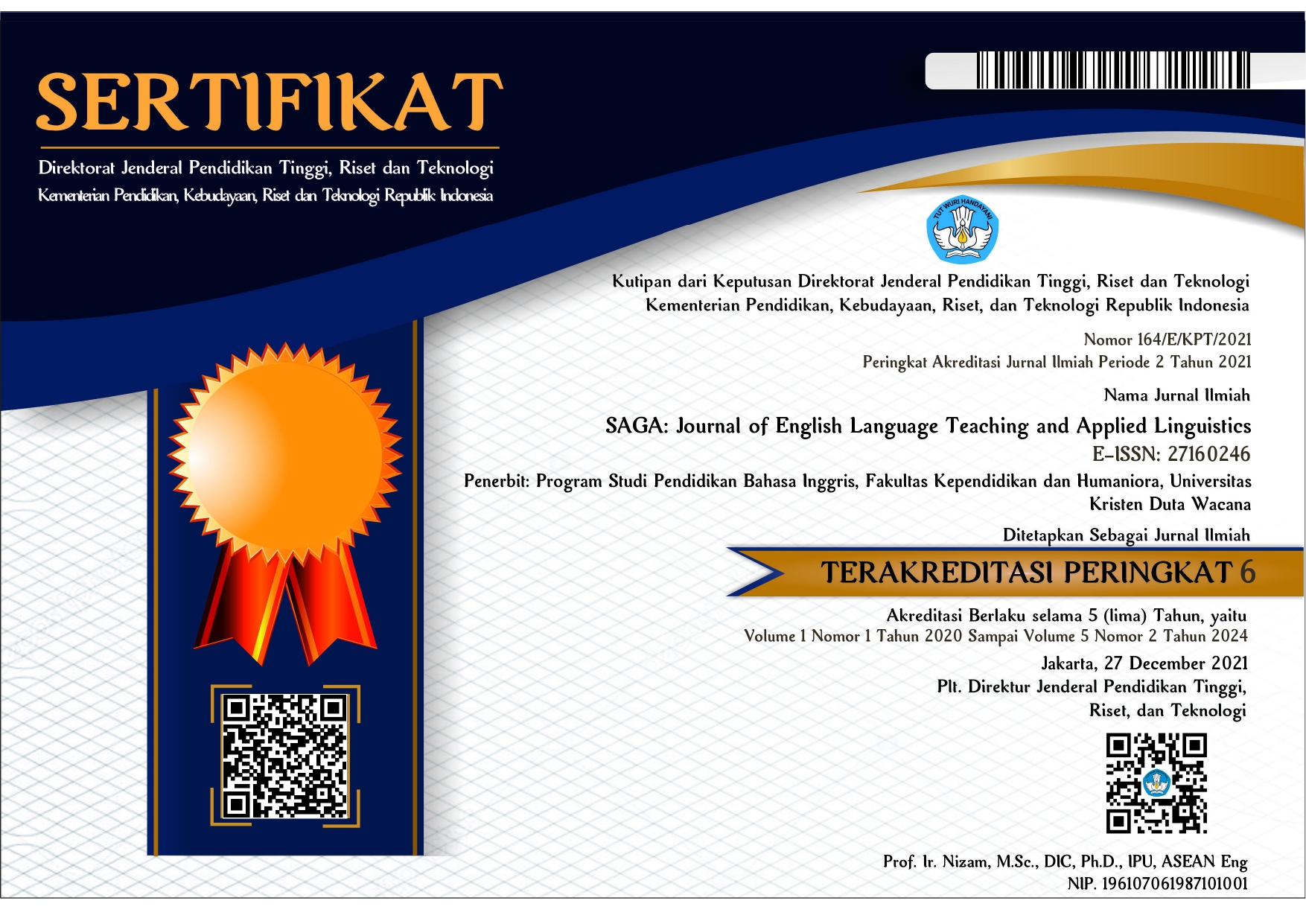THE SENSE OF SELF EFFICACY OF PRE-SERVICE ENGLISH TEACHERS IN EFL CONTEXT
DOI:
https://doi.org/10.21460/saga.2021.22.79Abstract
This study aims to describe the sense of self-efficacy of pre-service teachers in the context of EFL. This issue needs to be discussed because of the importance of self-efficacy in teaching for the pre-service teacher. The study used the Teacher Sense of Efficacy Scale (TSES) questionnaire as the instrument. There were 103 respondents participated in this study. The results showed that pre-service English teachers were more effective on instructional strategy with an average score of 3.7840 of the overall sense of efficacy. Then, followed by student engagement efficacy with an average score of 3.7561, and the last one is class management with an average score of 3.7318. Based on the data obtained, it shows that the students' sense of efficacy is at a moderate level.
References
Arsal, Z. (2014). Microteaching and pre-service teachers' sense of self-efficacy in teaching. European Journal of Teacher Education, 453–464. http://dx.doi.org/10.1080/02619768.2014.912627.
Atay, D. (2007). Beginning teacher efficacy and the practicum in an EFL. Teacher Development: An international journal of teachers' professional development, 203-219. https://doi.org/10.1080/13664530701414720.
Bakar, A., Mohamed, S., & Zakaria , N. S. (2012). They are trained to teach, but how confident are they? A study of student teachers' sense of efficacy. Journal of Social Sciences, 497-504. https://thescipub.com/PDF/jssp.2012.497.504.pdf.
Bandura, A. (1994). Self efficacy. In V. S. Ramachaudaran (Ed.), Encyclopedia of human behaviour, 4, 71-81.
Çankaya , P. (2018). The exploration of the self-efficacy beliefs of English language teachers and student teachers. Journal of Language and Linguistic Studies, 12-23.
Dembo, M. H., & Gibson, S. (1985). Teachers' sense of efficacy: An important factor in school improvement. The Elementary School Journal, 173–184. doi:10.1086/461441.
Demirel, E. E. (2017). Investigating pre-service EFL teachers' self-efficacy beliefs. Selcuk University Social Sciences Institute Journal, 221-232.http://dergisosyalbil.selcuk.edu.tr/susbed/article/view/1402/1139.
Dolgun, H., & Caner, M. (2018). Self-efficacy belief profiles of pre-service and in-service EFL teachers. Mehmet Akif Ersoy University Journal of Education Faculty, 602-623. https://dergipark.org.tr/download/article-file/556033.
Ghasemboland, F., & Hashim, F. B. (2013). Teachers' self-efficacy beliefs and their English language proficiency: A study of nonnative EFL teachers in selected language centers. Procedia - Social and Behavioral Sciences, 890-899. https://doi.org/10.1016/j.sbspro.2013.10.411.
Ghonsooly , B., & Ghanizadeh, A. (2013). Self-efficacy and self-regulation and their relationship: a study of Iranian EFL teachers. The Language Learning Journal, 68-84. http://dx.doi.org/10.1080/09571736.2011.625096.
Megawati, F., & Astutik, Y. (2018 ). Teaching practicum: Investigating EFL pre-service teachers' self efficacy. English Review: Journal of English Education, 125-136. doi: 10.25134/erjee.v7i1.1500.
Nugroho, H. A. (2017). Pre-service EFL teachers' self-efficacy, their English proficiency and their preparedness for teaching practicum. Premise Journal of English Education, 1-11. http://ojs.fkip.ummetro.ac.id/index.php/english/article/view/997/748.
Sarfo, F. K., Amankwah, F., Sam, F. K., & Konin, D. (2015). Teachers' self-efficacy beliefs: The relationship between gender and instructional strategies, classroom management and student engagement. Ghana Journal of Development Studies (GJDS), 19-32
Shaukat, S., & Iqbal, H. M. (2012). Teacher self-efficacy as a function of student engagement, instructional strategies and classroom management. Pakistan Journal of Social and Clinical Psychology, 82-85.
Yeo, L. S., Ang, R. P., Chong, W. H., Huan, V. S., & Quek, C. L. (2008). Teacher efficacy in the context of teaching low achieving students. Current Psychology, 192-204. DOI 10.1007/s12144-008-9034-x.
Yüksel, H. G. (2014). Becoming a teacher: tracing changes in pre-service English as a foreign language teachers' sense of efficacy. South African Journal of Education, 1-8.
















